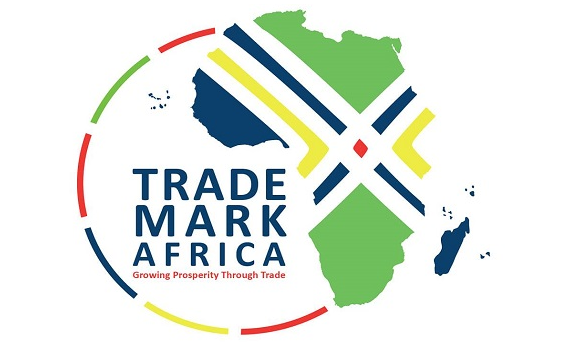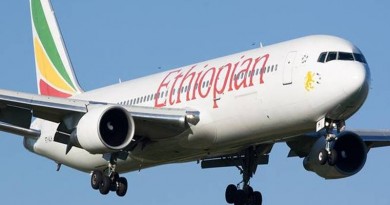TradeMark Africa announces plan to support more inclusive, greener and digital trade initiatives
TradeMark Arica (TMA) has unveiled its third strategy plan to encourage more inclusive, greener, and digital trade activities after over 13 years of supporting trade facilitation initiatives in East Africa, Southern Africa, and the Horn of Africa. The strategy spans the years 2023-2030. TMA hopes to raise and invest $700 million over the next seven years.
TMA has indicated that it wants to help reduce trade costs and boost efficiency in an enlarged Pan-African posture. It aspires to expand Africa’s share of global commerce as a percentage of exports by 4% and the value of its exports to the rest of the world from $500 billion to $650 billion, all while directly contributing to job creation.
The seven-year Strategy 3 plan is based on calculated efforts to support the implementation of the African Continental Free Trade Area (AfCFTA), the decarbonisation of trade and logistics processes in Sub-Saharan Africa with a goal of leveraging $180 million in green investments, and facilitating enterprises and governments through innovative automated systems to ease cross-border transactions and accelerate the movement of goods across select trade and transport corridors. Building on the success of Strategies 1 and 2 (2010-2023), TMA will focus on specific corridors across the continent, with the goal of decreasing the time and cost of trade across borders and trade hubs by 15%.
The plan follows TMA’s recent rebranding and expansion into West Africa with the opening of a new office in Ghana. Amb. Erastus Mwencha, TMA Board Chair, stated that the strategy’s main aim will be to improve trade facilitation across Africa with the purpose of improving livelihoods by boosting job development. Other critical concerns, such as promoting a greener trade environment and boosting inclusive trade, in which the marginalized, particularly women and youth, are encouraged to deal more in value-added items through legitimate trade channels, take center stage.
“At the heart of this plan is the recognition that sustainable and inclusive trade is a powerful tool for poverty reduction and economic growth; and that trade can be a catalyst for addressing major global challenges such as climate change, particularly in Africa as the continent positions itself for economic take-off,” Amb. Mwencha said. “We will maintain our focus on reducing the time and cost of cross-border trade, with a goal of doing so by 15% at selected corridors and trade nodes.
Mogens Larsen, Chair of the TradeMark Africa Council of Donors, stated, “We are proud of the results TMA has achieved over the last 13 years, particularly in reducing the time and cost of cross-border trade and enabling businesses to capitalize on these gains in an inclusive manner.” TMA’s Strategy 3 puts out a significant step forward in encouraging expanded commerce in Africa through green economic growth, with the firm belief that Africa can both develop quickly and in a climate-resilient manner.
“Over this strategic plan, TMA will focus on what works best, in expanding our capabilities to deliver inclusive and sustainable trade across Africa; and will help tackle some of today’s major development challenges, not least the impact of climate change,” stated TradeMark Africa CEO David Beer. Strong collaborations and political ownership will continue to be key to TMA’s success, which will be reinforced by producing measurable outcomes and swift improvements that make a tangible difference.”
TMA has helped to significantly reduce the cost and time it takes to trade across borders in the Eastern Africa region, which has been its primary focus since its inception. The time it takes to move a container from Mombasa to Kampala, for example, decreased between 2017 and 2021.
The time to cross select One Stop Border Posts (OSBPs) – which are the hallmark of TMA’s Strategy 1 and 2 work – has reduced by an average of 70%. Implementation of electronic single window systems, digital portals, integrated customs management systems, regional electronic cargo tracking, and automated trade exchanges have directly resulted in at least an 80% reduction in the time and cost of obtaining permits and related trade-related documentation.
This has led to improved ease of doing business in the region.
TMA is well-known for its contributions to efficiency through the development of physical and digital infrastructure, policies and capacity building at the ports of Mombasa and Dar es Salaam, assistance in the development of customs systems for Revenue Authorities such as Kenya Revenue Authority iCMS, Uganda Revenue Authority (URA) – Asycuda World System, and Burundi Revenue Authority’s customs system, and national electronic single window systems in Uganda, Rwanda, and Burundi.
According to URA estimates, the Uganda Electronic Single Window has facilitated import and export processes for traders in the landlocked country, with cost savings of approximately US$26.4 million in 2021 recorded.
TMA’s women and trade program, which is currently facilitated across 14 border points in Eastern Africa, has seen participants improve their incomes, with women farmers reporting an 18% increase in monthly median income, while women traders reported a 50% increase in average monthly income, according to an evaluation conducted last year.
TMA’s recently launched commercial arm, Trade Catalyst Africa (TCA), will play a crucial role in raising funds for commercially viable infrastructure projects. TMA’s strategic aims in African trade are envisaged to be met by leveraging private finance to meet demand for trade infrastructure.




